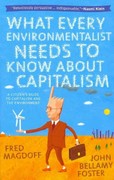Question
a. Assume that housing and food are the only goods available. A family's budget is $800 a month. Assume the price of food is equal
a. Assume that housing and food are the only goods available. A family's budget is $800 a month. Assume the price of food is equal to $4 and the price of housing is equal to $5. Draw the budget constraint for this family.
b. Draw the budget constraint if the family is given a TANF grant of $1200 a month and prices and other income are the same as in part A. There is no restriction on how TANF grants may be spent.
c. Draw the budget constraint if instead of TANF the family is given a housing voucher worth $1200 a month and prices and other income are the same as in part A. Housing vouchers may only be spent on housing.
d. Draw the budget constraint if instead of a housing voucher the family is given public housing worth $1200 a month and prices and other income are the same as in part a. Assume public housing does not cost the family anything. Also, assume that if a family lives in public housing, they cannot use their own money to increase the size of the public housing unit they are renting.
Hint: Even though public housing does not cost the family anything, your budget constraint must show the value of the public housing to the family. The reason is that the budget constraint shows all of the possible choices available to the family.
Step by Step Solution
There are 3 Steps involved in it
Step: 1

Get Instant Access to Expert-Tailored Solutions
See step-by-step solutions with expert insights and AI powered tools for academic success
Step: 2

Step: 3

Ace Your Homework with AI
Get the answers you need in no time with our AI-driven, step-by-step assistance
Get Started


